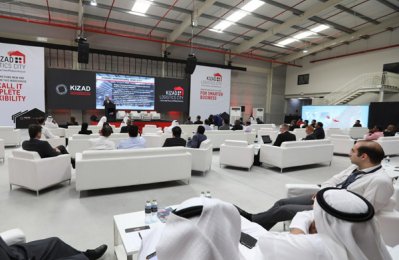Khalifa Industrial Zone Abu Dhabi (Kizad) has launched the first "on-demand" warehouse solutions offering in the Middle East to respond to the demand for more flexibility from retailers, shippers and logistics companies, said a report.
The newly inaugurated Kizad Logistics City offers warehousing services in a breakthrough pay-per-use model which allows potential customers to avoid capital expense, reported state news agency Wam.
The new hub will be located at Kizad, adjacent to Khalifa Port, one of the fastest growing ports in the world, close to major UAE airports, and seamlessly connected by uncongested highways to Abu Dhabi, Dubai and into Saudi Arabia.
Kizad Logistics City offers free zone and non-free zone warehousing solutions spanning over 1.3 million sq ft (118,965 sq m), equivalent in size to about 17 soccer fields.
The warehousing is suited to luxury goods, high-value retail items, food and pharmaceuticals with each unit having its own dedicated loading yard with ramp access for forklifts and ample on-site parking. Facilities can be further customised or expanded to suit specialised or growing business needs.
All facilities can be booked on demand, without the need for long-term lease contracts and are available for a range of business needs, starting from 10,000 square feet (1,000 sq m). Online warehousing bookings are available through Kizad’s dedicated E-Services website on the Maqta Gateway platform - klc.kizad.ae - and other leading booking platforms like GO DC.
To add further flexibility and convenience, customers will also receive full investor support through Abu Dhabi government entities located at Kizad’s Taweelah headquarters.
Flexible space bookings through online platforms will also be bundled in a service offering that may include packing and unpacking, palletizing and labelling.
Senior industry professionals from the logistics and retail sectors attended the launch event which included a panel discussion and the preview of a new report from LogiSYM entitled ‘Flexing it. Supply chain flexibility and the need for digitalisation in the UAE’.
The report highlights how the UAE stands out as a country determined to position itself in a region poised for growth, with strong innovative investment policies in globally oriented ports, airports and airlines.
During the discussion with the audience, a specific mention was made to the future of the e-commerce sector which is growing rapidly in the UAE, from $2.5 billion in 2014, to $10 billion by the end of 2018, added the report.
Kizad launches ‘on-demand’ warehouse solutions


&uuid=(email))